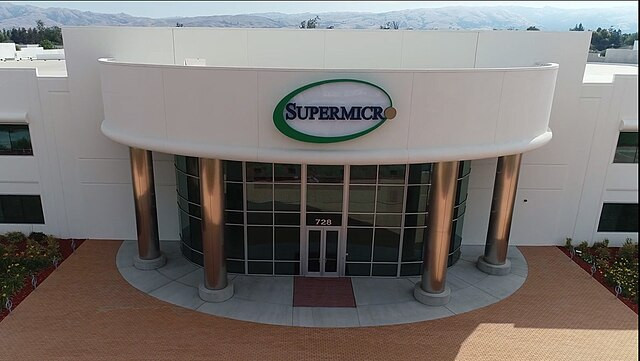Super Micro Computer, a prominent server manufacturer, experienced a significant drop in its stock price on Tuesday following the announcement of its fiscal fourth-quarter earnings, which fell short of Wall Street expectations. The company's shares plummeted 13% despite also revealing a 10-for-1 stock split, set to commence trading on a split-adjusted basis on October 1.
For the quarter ending in June, Super Micro reported adjusted earnings of $6.25 per share, significantly below the $8.07 per share anticipated by analysts. However, the company's revenue of $5.31 billion slightly exceeded expectations of $5.30 billion. The earnings miss was largely attributed to a drop in gross margin, which fell to 11.2% from 17% in the same period last year and from 15.5% in the third quarter. This decline highlights the challenges Super Micro faces in maintaining profitability amid rising production costs and competitive pricing pressures.
Super Micro's net income rose to $352.7 million, or $5.51 per share, up from $193.5 million, or $3.43 per share, a year ago. Despite this increase in net income, the company's margins suffered due to high costs associated with producing servers equipped with the latest AI chips, crucial for the burgeoning artificial intelligence market. CEO Charles Liang addressed these concerns, assuring analysts that margins would return to a normal range by the end of fiscal 2025, reiterating a gross margin target of 14% to 17%.
The company's stock, which has been a favorite among investors betting on its role as a key vendor for AI-driven companies like Nvidia, saw significant volatility. Initially, shares jumped 12% in extended trading following the stock split announcement but quickly reversed course, closing the day down 14%. This rollercoaster performance also affected other tech stocks, with Nvidia, Arm Holdings, and AMD all seeing declines.
Super Micro's forward guidance provided some relief, with the company expecting first-quarter revenues between $6 billion and $7 billion, well above the Wall Street estimate of $5.46 billion. However, the expected adjusted profit of $6.69 to $8.27 per share, with a midpoint below the consensus of $7.58, raised concerns about the company's ability to navigate the current market conditions effectively.
The company's CFO, David Weigand, noted on a conference call that competitive pricing strategies had impacted gross margins as Super Micro lowered prices to fend off rivals like Dell Technologies and Hewlett Packard Enterprise. Analysts expressed skepticism about the company's substantial investments in supporting the new generation of AI chips, such as those sold by Nvidia, amidst higher supply chain costs and tight supply of key components.
Despite the mixed financial results, Super Micro's shares have performed remarkably well over the past year, surging 246% in 2023 and up 117% year-to-date. The company joined the S&P 500 in March, reflecting its growing prominence in the tech sector. The stock closed Tuesday at $618.94, a sharp contrast to its highs earlier in the year.
Super Micro's ambitious forecast for the coming quarter and fiscal year underscores its confidence in continued strong demand for AI infrastructure. The company projected annual sales above estimates, driven by the AI boom, which has seen increased investments in data centers and related technologies.
Michael Ashley Schulman, Chief Investment Officer at Running Point Capital, commented on the market's reaction, noting that while the initial response to the earnings and split was positive, deeper analysis revealed concerns about the company's ability to scale efficiently amidst rapid growth. "The focus must have been on the higher-than-expected 2025 estimates, but as you dig through the numbers, all the actual misses and especially the much lower-than-expected gross margin may make portfolio managers question whether management can effectively and efficiently scale to handle the growth," Schulman said.





